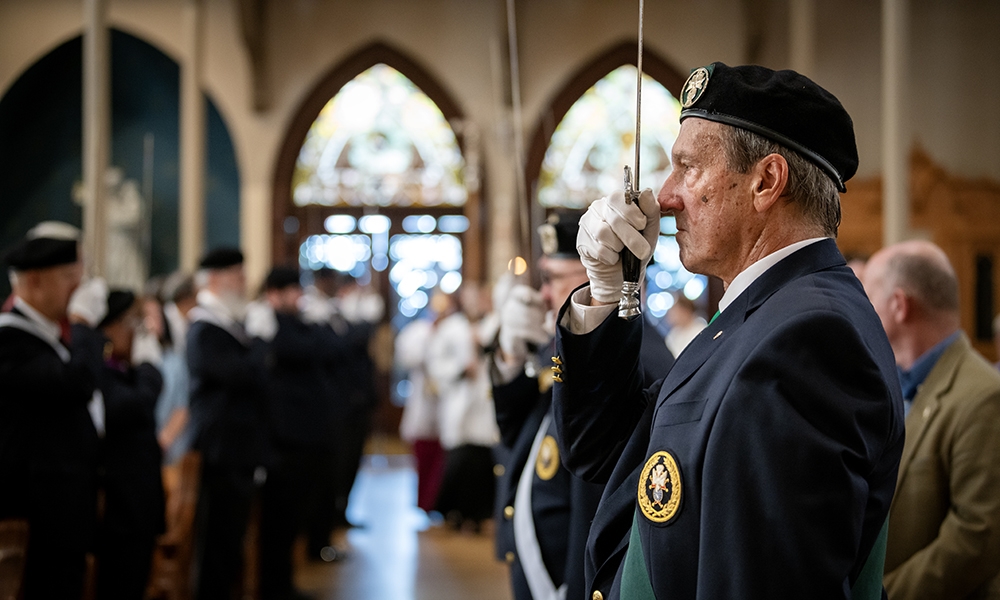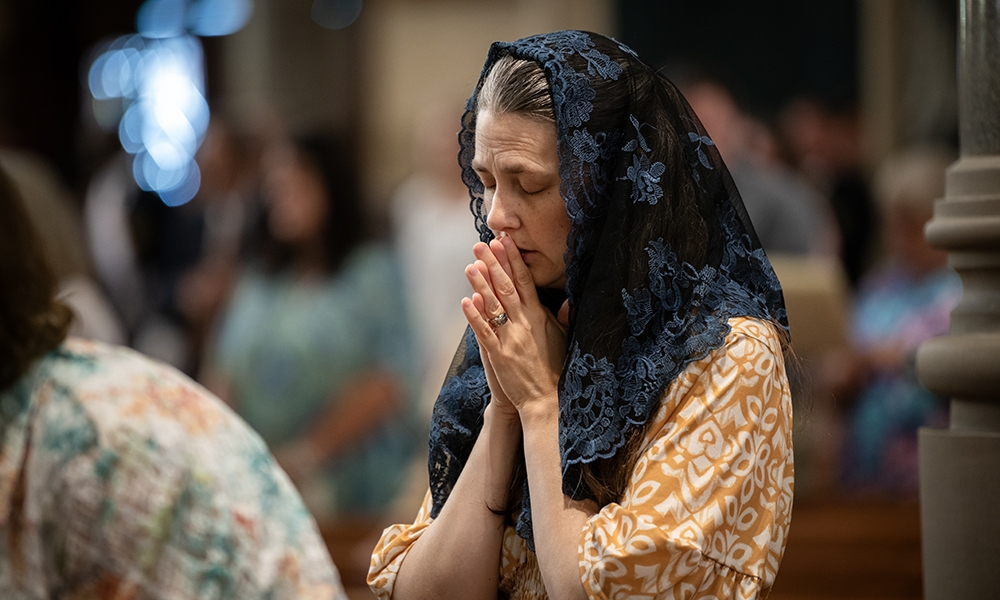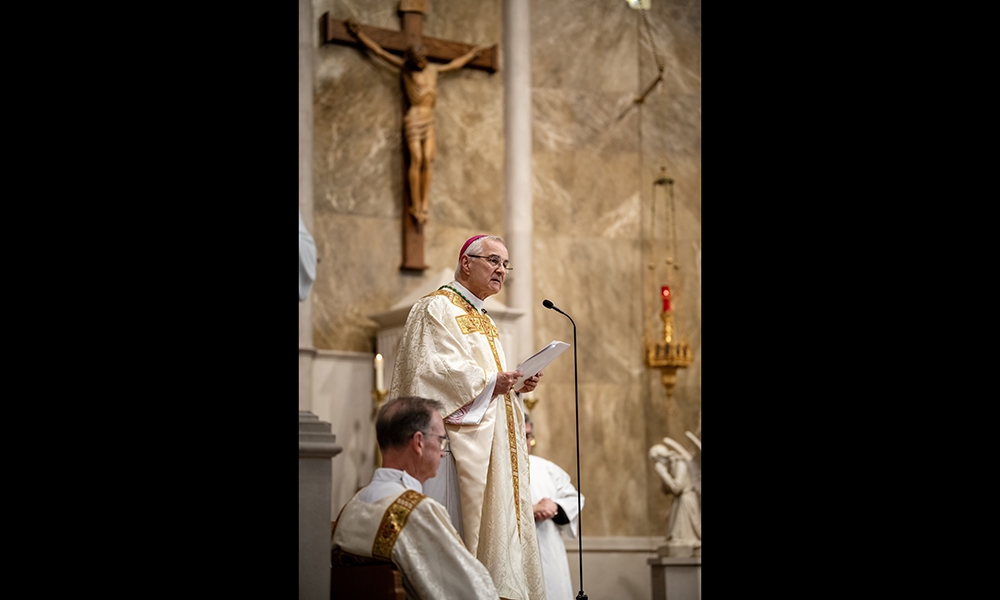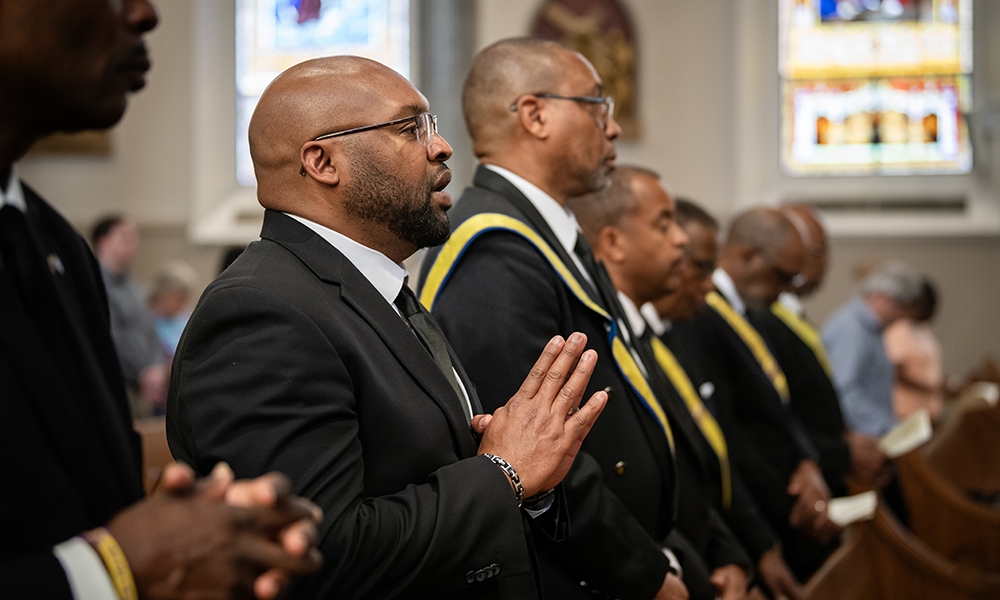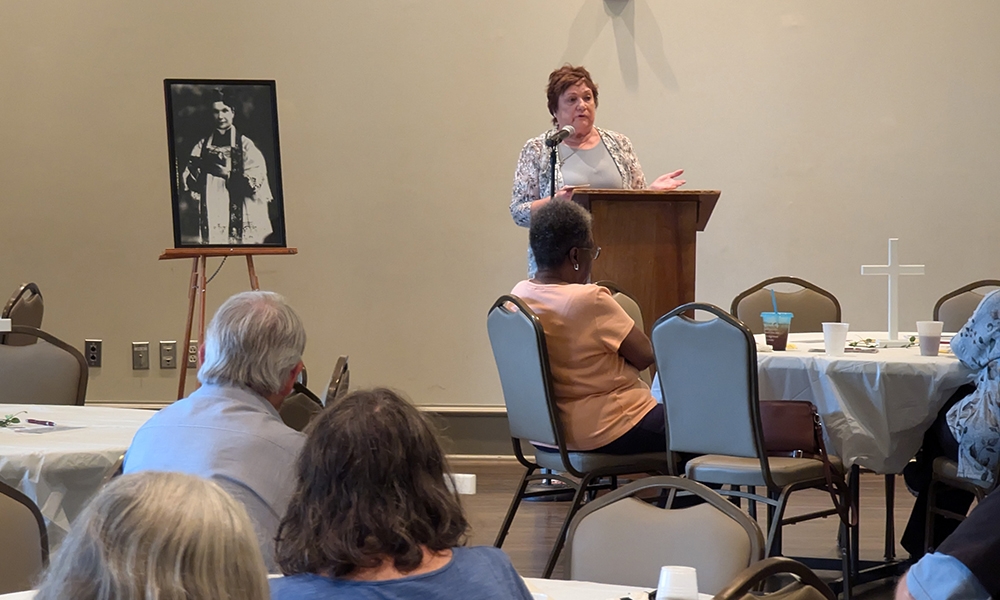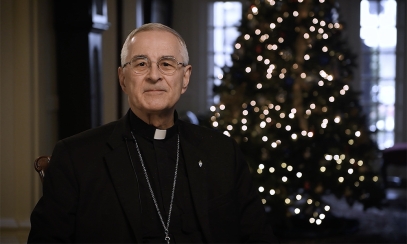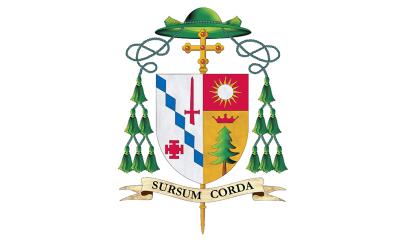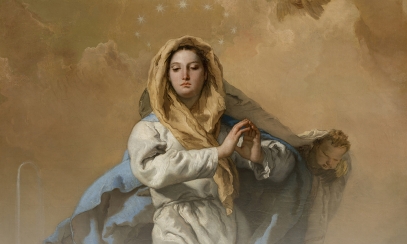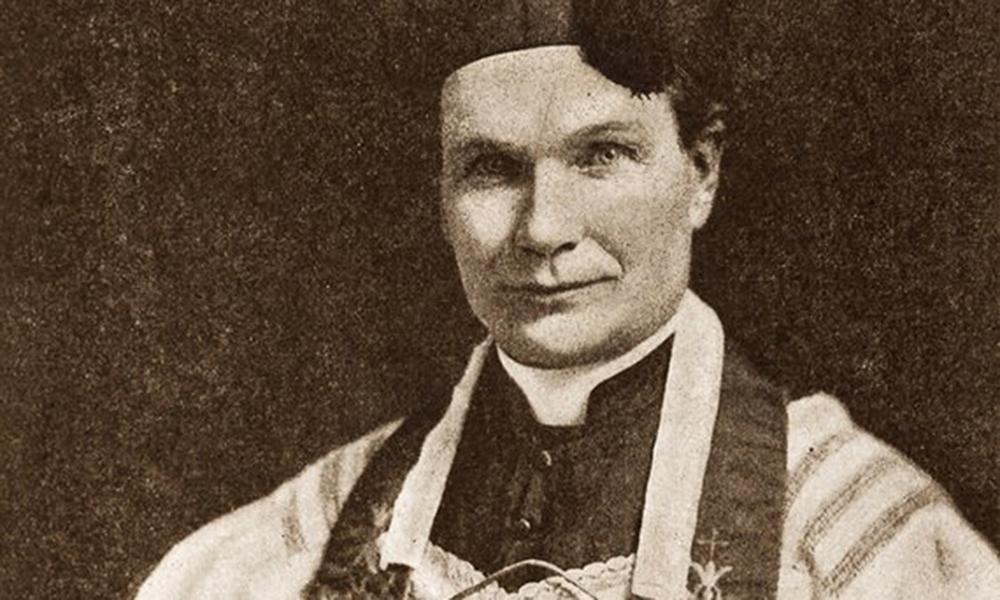
Remembering a man who looked ‘beyond’ to ‘proclaim God’s truth’
103rd anniversary of Father James E. Coyle’s murder
103rd anniversary of Father James E. Coyle’s murder
On Aug. 8, Bishop Raica celebrated a Mass of remembrance at the Cathedral of St. Paul, marking 103 years since the murder of Father James E. Coyle on Aug. 11, 1921. The complete text of the bishop’s homily follows herein.
On Aug. 8, Bishop Raica celebrated a Mass of remembrance at the Cathedral of St. Paul, marking 103 years since the murder of Father James E. Coyle on Aug. 11, 1921. The complete text of the bishop’s homily follows herein.
Dear sisters and brothers, welcome once again to the Cathedral of St. Paul here in downtown Birmingham for this annual gathering to pray for the repose of the soul of Father James Coyle, parish priest here at St. Paul Church over one hundred years ago. I especially welcome our clergy and consecrated persons, as well as my fellow companions on the journey present today for this event, especially the Knights of Columbus, the Knights of St. Peter Claver, and the Order of the Hibernians. Together we honor the life and legacy of Father Coyle, pastor here at St. Paul’s. His unique life and his dedication to mission cannot be overlooked. It is said that he studied at the Pontifical North American College in Rome, and as a result of his murder, he would be one, and I’m not aware of any others, of the martyrs from the college. Of course, here he enjoys a unique status as a priest and pastor of St. Paul’s Church in downtown Birmingham.
Over 100 years ago, Birmingham was a tough city. Even today, it is still a tough city in many ways, yet it did not deter Father Coyle from proclaiming the fullness of faith and life, living his vocation as a courageous priest. His life and ministry were marked by service to one and all. He epitomized what it means to be “catholic” – universal in his preaching, in his witness, and in his life.
Periodically, he wrote reflections about faith and life in The Birmingham News. Even though the community was predominantly Protestant, it was this Irish Catholic priest who would ultimately pay the price for the bias and racism of the time with his life.
Today, we find Father Coyle’s life even more compelling. He did not shirk his responsibilities as a pastor but stepped up to the plate to denounce bigotry, racism, and lack of respect for all of our brothers and sisters. Such a witness – not only by words, but also by his deeds in the witnessing of a wedding that was so opposed by the bride’s father, a Methodist Minister, that caused such a reaction in him leading to the assassination of the priest.
I ask myself: How has the life of Father Coyle impacted my life? Afterall, I don’t believe any of us knew him personally. Certainly, I didn’t, but a number of folks here today have heard about him, read about him, and studied the historical and legal implications of what occurred. We cannot but be amazed that he was faithful in the exercise of his ministry in the face of hatred toward our faith, especially about the administration of the sacraments and the urging of people to practice their faith to the fullest extent possible even in the midst of explicit headwinds that sought to undermine Catholics and the Catholic faith.
Some here, who are more knowledgeable than I, can share further technical insights, but perhaps the key takeaway for me is that he trusted in the gift of God’s grace to look beyond - beyond race and color, beyond bias and prejudice in order to proclaim God’s truth about the human person and His desires and longings. Thus, he sought conversion and change of heart of those he served. Additional work by The Father James E. Coyle Memorial Project, including the passion and dedication of Jim Pinto, Dr. Sharon Davies, and Judge William Pryor, among many others too numerous to mention here, have contributed to the deeper understanding of Father Coyle the person, the Christian, the consummate believer in Christ, the witness of true faith, and the extraordinary gift to our Birmingham community. Here we find a convergence of a love story complicated by faith, bigotry, and violence – a space where religion, a racial divide, and murder revealed the dark side of the barbarities which plagued our area a century ago.
While some progress has been made, we continue to study and explore the complexities of justice, race relations, respect for human life and dignity, and what this case, among many others in our city, can reveal to us today.
Father Coyle’s murder on the porch of the rectory of St. Paul’s Church, is a further reminder of the precariousness of life. Each day is a moment of grace to testify to Christ by our words and actions, or to cave in to the limitations and reductions of modern sentiments.
Our readings today underscore some of the attitudes against which we can measure ourselves in the practice of our faith.
The first reading from the great prophet Jeremiah illustrates that the covenanted relationship we have with the Lord in which he noted the Lord’s thoughts: “I will place My law within them, and write it upon their hearts; I will be their God, and they shall be My people.” There is some hint at the presence of a conscience in our souls that has access to the very mind of God that can guide us if we can tune into and hear more clearly the voice of God speaking in our souls.
Similarly, the Gospel highlights the confession of faith of St. Peter, who proclaims Jesus to be the Messiah. Jesus acknowledges that it is His mission to build His Church on Peter’s confession with the assurance that the gates of the netherworld shall not prevail against it. When Jesus spoke about the pain, suffering, and death He would have to endure, Peter objected. Jesus turned and scolded him, “Get behind Me, Satan! You are an obstacle to Me. You are thinking not as God does, but as human beings do.” (cf. Mt 16:23 passim)
So, how does one “think as God does.” It requires much prayer and reflection – like we are doing today with the visible witness of Father Coyle: to get our prejudices, human limitations, and biases out of the way to see what God sees in a given moment. The Church is here as that privileged place where we can see and hear God more readily so that we can “think as God does” in living our life.
It is important to highlight a thought from the funeral of Father Coyle. The homily was preached to a standing room only and overflowing crowd representing the entire community of Birmingham and beyond. Father Michael Henry of Mobile preached the homily. They grew up together, studied in Rome together, were ordained priests at the same time, and were missionaries together. He based his funeral homily on the theme: “You have not chosen Me, but I have chosen you.” (cf. Jn 15:16)
The life, the witness of Father Coyle could be noted in these areas: He heard the call of Christ; he followed Christ unreservedly; he was sent to witness Christ as a priest in an area hostile to the faith; he lived his life as a priest respecting all who came to him with a sincere desire to follow Christ. Through his life, he thought “not as human beings” do, but because of the intensity of his life, began to think more and more “as God does.” He recognized that he was chosen by God and did not shirk his responsibilities to be a minister on fire with the word and love of God. He was not afraid to act because his communion with God was so intense through prayer, love of Christ, and His sacraments.
Today, when faced with the enigmas and challenges of life and relationships, we as asked to “think as God does,” and perhaps, with a prayer, openness, and the witness of Father Coyle, we can recognize anew that “you have not chosen Me, but I have chosen you.” May God bless you all!
To learn more about Father Coyle, please visit fathercoyle.org.

